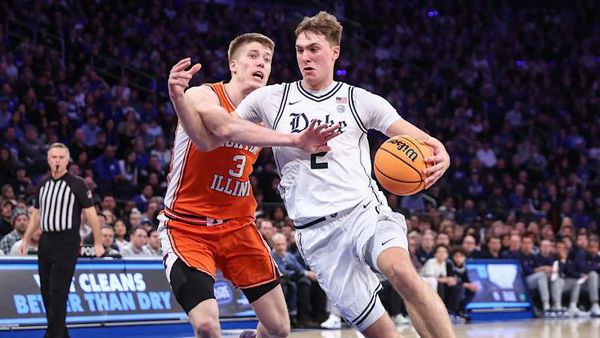The ongoing crash of cryptocurrencies and mainly Bitcoin has led observers to identify the collateral victims of this debacle.
There are of course the retail investors who have seen the value of their portfolio melt away. Some testimonials on social networks even speak of financial ruin suffered by some individual investors.
Crypto billionaires like Changpeng Zhao, founder of cryptocurrency exchange Binance.com, Brian Armstrong, co-founder of Coinbase (COIN), have lost tens of billions of dollars.
Electric vehicle maker Tesla (TSLA), software company MicroStrategy (MSTR), fintech Block (SQ) and others have seen their Bitcoin investments go wrong.
But little attention has been focused on Robinhood. The millennial and Gen Z broker has managed to fly under the radar and be forgotten. Yet Robinhood (HOOD), one of the major players in the crypto galaxy, has seen its difficulties worsen, at least on the stock market.
The Market Cap Has Shrunk by $26 Billion
Robinhood went public last July at a price of $38 per share. In less than a year, the firm, which wanted to democratize finance by attracting a new generation of investors, saw its share lose more than 81.4% of its value to $7.05 on June 15.
The company's market capitalization is only $5.9 billion from $32 billion at the time of its IPO.
If these figures make you dizzy, there is another fact that is more disturbing: Robinhood's market capitalization is now less than the company's cash on hand.
"Cash and cash equivalents at March 31, 2022 totaled $6.2 billion, compared with $6.3 billion at March 31, 2021," the company said in April during its first-quarter earnings.
"We're seeing our customers affected by the macroeconomic environment, which is reflected in our results this quarter," said at the time chief financial officer Jason Warnick. "At the same time, we've also made progress on our long-term plans and continue to pursue them aggressively."
Since the first quarter results, things have not really settled for Robinhood despite numerous initiatives to try to stem the bleeding. Monthly active users (MAU) fell from 15.7 million in April to 14.6 million in May, down 7%, the group announced recently. However, the drop is 39% over one year.
The firm recorded 15,9 million MAU during the first three months of 2021.
Crypto trading volume fell 94% to $7 billion in May compared to May 2021. The pullback is 7% from April.
"With customers returning to pre-pandemic behavioral trends and a potential recession ahead, user engagement seems likely to decline further," Atlantic Equities analysts John Heagerty warned in a note. "Plummeting crypto valuations will have a direct impact on both volumes and order value."
'Limited Room to Be Profitable'
The analyst lowered his Robinhood price target to $5 per share, following the same logic as analyst Ken Worthington of JPMorgan Chase &Co. Worthington lowered its price target from $11 to $7.
"For the month, Robinhood generated $1.5bn of net sales, a 22% organic growth rate. However, in [a] flat market in May (S&P500 was up 18bps), Robinhood clients were down 900bps. Margin balances also fell for the month by 20% to $4.2bn," said Worthington. "We now give Robinhood credit for $1bn of excess cash versus $2.5bn previously reflecting comments by the CFO on excess liquidity."
"While the founders have leveraged innovation, guts, and ideal market conditions to build a leading US retail broker, we do not see growth as sustainable, and we question the ability of the company to generate competitive margins over time given the focus on such small accounts that have limited room to be profitable," concluded Worthington.
Robinhood did not immediately respond to a request for comment from TheStreet.
The online brokerage firm first drew widespread attention in early 2021 as a vehicle used by novice traders to help bid up the price of so-called meme stocks.
By generating buzz in investing chat rooms on Reddit about heavily shorted companies, the traders hoped to force prices higher. That in turn put pressure on those short the stock to cover their positions, pushing shares even higher in short squeezes.
Gamestop (GME) and AMC Entertainment (AMC), the so-called meme stocks, were among the companies that saw shares run up the most during the period. But GameStop and AMC shares have also since fallen sharply.
Robinhood faced criticism and congressional hearings at the time over limits it placed on customers trading during wild gyrations in share prices.
But the company managed to put the controversy behind it as it moved to go public later in 2021.
But since the beginning of the year nothing goes. The backing of young billionaire Sam Bankman-Fried, the founder and CEO of crypto exchange FTX.com, does not seem to have changed the situation.
In May, Bankman-Fried announced that he acquired 7.6% stake in the firm at weighted average prices ranging from $8.28 a share to $13.53. In total, Bankman-Fried acquired 56,273,469 shares valued at $648.3 million, according to a filing with the Securities and Exchange Commission.
This investment has already lost more than $250 million of its value.







